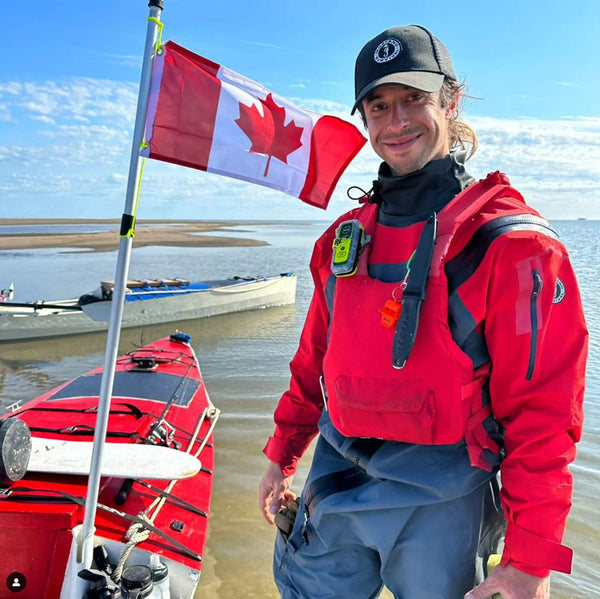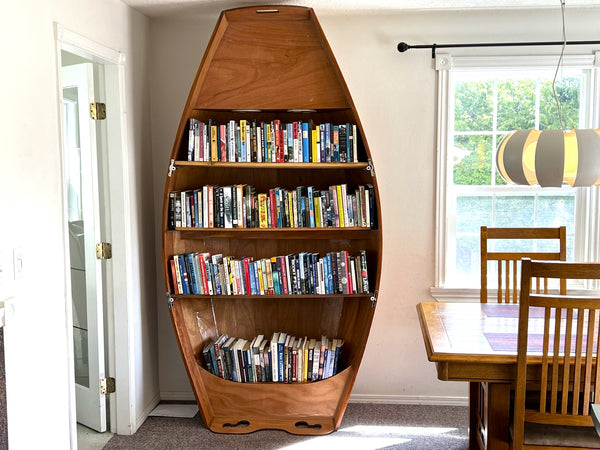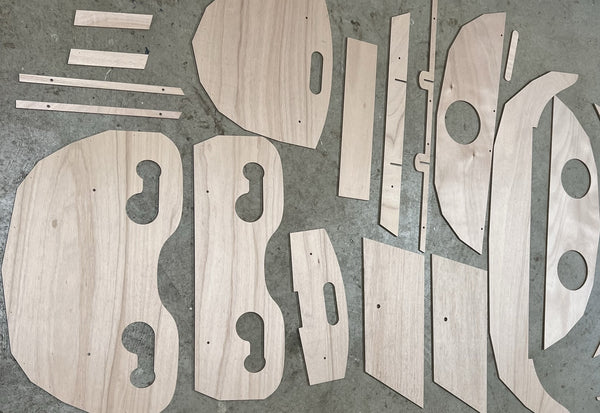About our R2AK 2016 Attempt
Race to Alaska is 1200 km boat race from Port Townsend, Washington to Ketchikan, Alaska. It is comprised of two stages – Port Townsend to Victoria, BC, and then Victoria to Ketchikan. The rules of the race are very simple; no motorized propulsion, anything else goes. Anything from a one-man kayak, to a 60 person rowing/sailing Viking ship can be used. First to reach the finish line gets $10,000.
The Boat
 The boat we will be using is our RowCruiser model with an auxiliary sailing rig which includes outriggers (amas). The RowCruiser is designed to be a recreational cruising rowboat, which includes a sleeping cabin and offers decent rowing performance. The vessel is close to 19’ in length with a ketch rig and sliding seat rowing system.
The boat we will be using is our RowCruiser model with an auxiliary sailing rig which includes outriggers (amas). The RowCruiser is designed to be a recreational cruising rowboat, which includes a sleeping cabin and offers decent rowing performance. The vessel is close to 19’ in length with a ketch rig and sliding seat rowing system.
The Crew
 Our initial plan was to have two crew, so the team could travel continuously with the crew alternating in two hour shifts. After extensive trialing, however, we have decided instead to make it a solo attempt, with Colin helming the boat. The boat moves about 20% faster with the weight of just one person (and gear) compared to two. By strategically optimizing the boat for solo sailing, we feel it will be possible to travel at close to the same speed with just one person. This will have the added advantage of allowing us to compete among solo contenders. Safety will also be improved by being able to fully seal the sleeping cabin while on the water. Strategic power naps will be achieved at anchor in the storm-tight cabin.
Our initial plan was to have two crew, so the team could travel continuously with the crew alternating in two hour shifts. After extensive trialing, however, we have decided instead to make it a solo attempt, with Colin helming the boat. The boat moves about 20% faster with the weight of just one person (and gear) compared to two. By strategically optimizing the boat for solo sailing, we feel it will be possible to travel at close to the same speed with just one person. This will have the added advantage of allowing us to compete among solo contenders. Safety will also be improved by being able to fully seal the sleeping cabin while on the water. Strategic power naps will be achieved at anchor in the storm-tight cabin.
Strategy
 The beauty of the R2AK is the number of different boat designs in the race. Each design has specific weather conditions most favorable for making progress. For the large racing sailboats with tough crew and equipment continuous heavy winds are ideal, helping put them ahead of the smaller performance sailing craft. For human powered craft light winds and calms are best. Our boat will fair best (relative to the fleet) in light winds and frequent calms. While our boat sails very well, it cannot compete with the high-performance multihulls in stiff winds. On the other hand, it rows relatively fast (total boat weight is only 180 lbs including spars, foils and sails), so makes good time under oar. Periods devoid of wind for more than 12 hours won’t be ideal, since half a day of continuous rowing is the limit for one person.
The beauty of the R2AK is the number of different boat designs in the race. Each design has specific weather conditions most favorable for making progress. For the large racing sailboats with tough crew and equipment continuous heavy winds are ideal, helping put them ahead of the smaller performance sailing craft. For human powered craft light winds and calms are best. Our boat will fair best (relative to the fleet) in light winds and frequent calms. While our boat sails very well, it cannot compete with the high-performance multihulls in stiff winds. On the other hand, it rows relatively fast (total boat weight is only 180 lbs including spars, foils and sails), so makes good time under oar. Periods devoid of wind for more than 12 hours won’t be ideal, since half a day of continuous rowing is the limit for one person.
Top speed for the RowCruiser under sail is about 12 knots, and a sustainable rowing speed (for 10-12 hours) is 3.5 -4 knots. We will be experimenting with various sleep strategies in advance of the race. Ideally, sleeping at anchor will occur when conditions are the most contrary (heavy headwinds, opposing currents, etc.).
Safety
 Safety is paramount when sailing in cold northwest waters. The sailing RowCruiser is comprised of seven watertight compartments, so it can sustain significant damage and remain afloat. One of the greatest dangers with multihulls is capsizing, since they are very stable in the inverted position making righting difficult. We have addressed this issue by using quick release amas. One ama can be released in less than 30 seconds (with a tether to keep it from blowing away) making recovery very easy. And a great deal of thought has gone into clothing to ward off hypothermia. A Helly Hansen drysuit and HH clothing (designed specifically for the sea) will be used strategically to stay warm while sailing and to shed heat while rowing.
Safety is paramount when sailing in cold northwest waters. The sailing RowCruiser is comprised of seven watertight compartments, so it can sustain significant damage and remain afloat. One of the greatest dangers with multihulls is capsizing, since they are very stable in the inverted position making righting difficult. We have addressed this issue by using quick release amas. One ama can be released in less than 30 seconds (with a tether to keep it from blowing away) making recovery very easy. And a great deal of thought has gone into clothing to ward off hypothermia. A Helly Hansen drysuit and HH clothing (designed specifically for the sea) will be used strategically to stay warm while sailing and to shed heat while rowing.
Sponsors:
A big thanks goes to all our supporters which include Helly Hansen, Aqua Quest, Small Craft Advisor, and our company Angus Rowboats (smart decision, Angus Rowboats!!). Norwegian Helly Hansen has been making clothing for seafarers for more than a century, so we feel reassured to be using their clothing. Most of you boat enthusiasts are probably already aware of Small Craft Advisor - it’s a wonderful magazine that explores the nuances of small craft exploration and designs.
1 Response
Bruce Bolster
This is an absolutely brilliant design. All the good features of the cruising rowboat, together with a fast, affordable and effective sail plan. Nicest looking small tri since the Fulmar, but with human power for the auxiliary engine. I want one! Need to unload a couple of kayaks and a C&C 30 to find time to enjoy it though :-) What are the akas made of, and how easy would they be to duplicate?
Leave a comment
Comments will be approved before showing up.
Also in News

Human Powered Achievements through the Northwest Passage
At Angus Rowboats, our passion for adventure naturally draws us to the mystique of the Northwest Passage – one of the world's most captivating and perilous waterways. Historically, this elusive passage promised a shorter shipping route, spurring early navigators to fervently chart and struggle through its icy intricacies.
The summer of 2023 saw three audacious teams, including one using our very own RowCruiser boats, aiming to be the first to traverse NW Passage solely by human power within a single season. As the season concludes, we've chronicled these attempts, and catalogued past human-powered endeavors to navigate the Northwest Passage.

Creating a Bookcase from a Boat


Colin Angus
Author